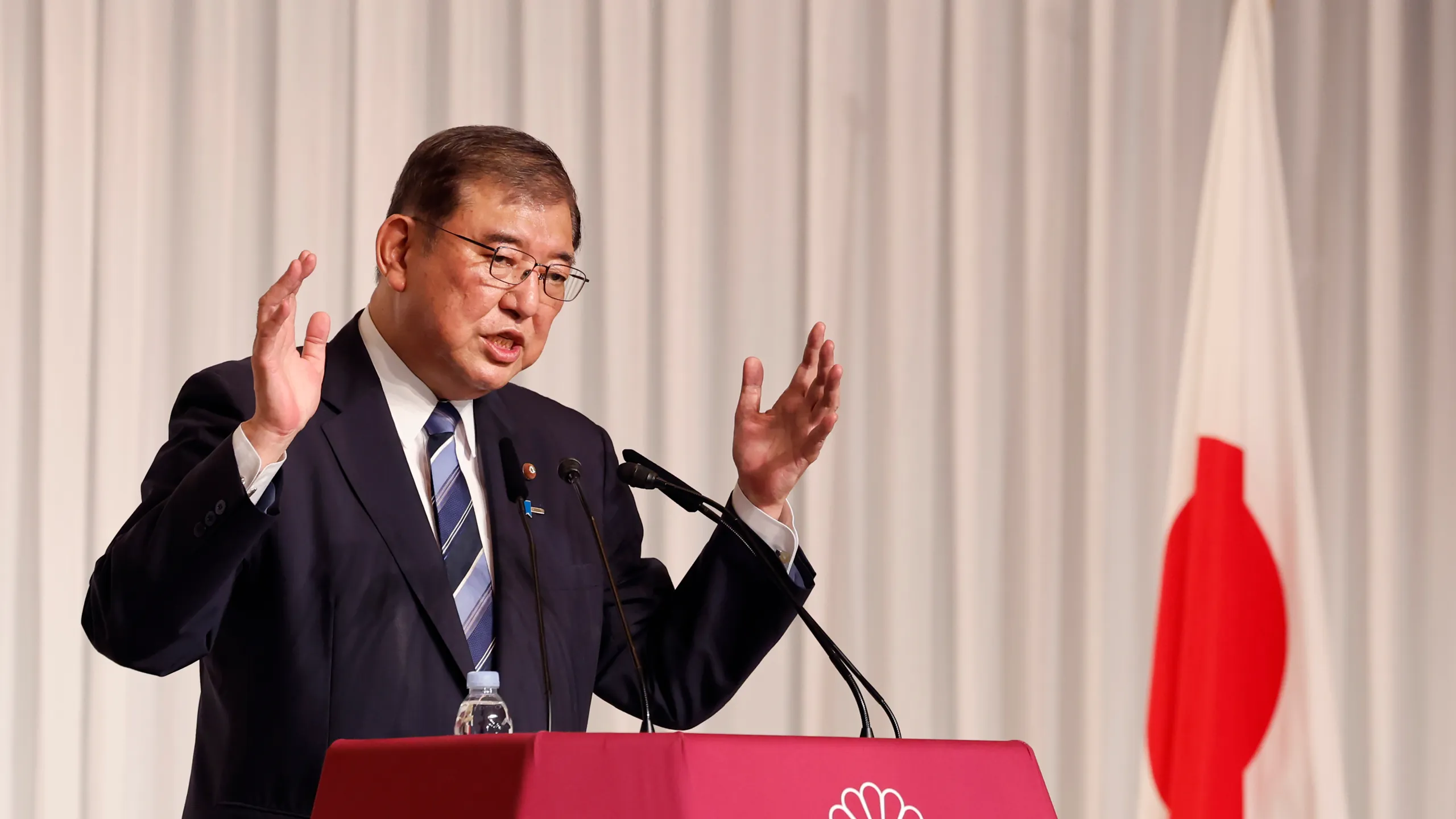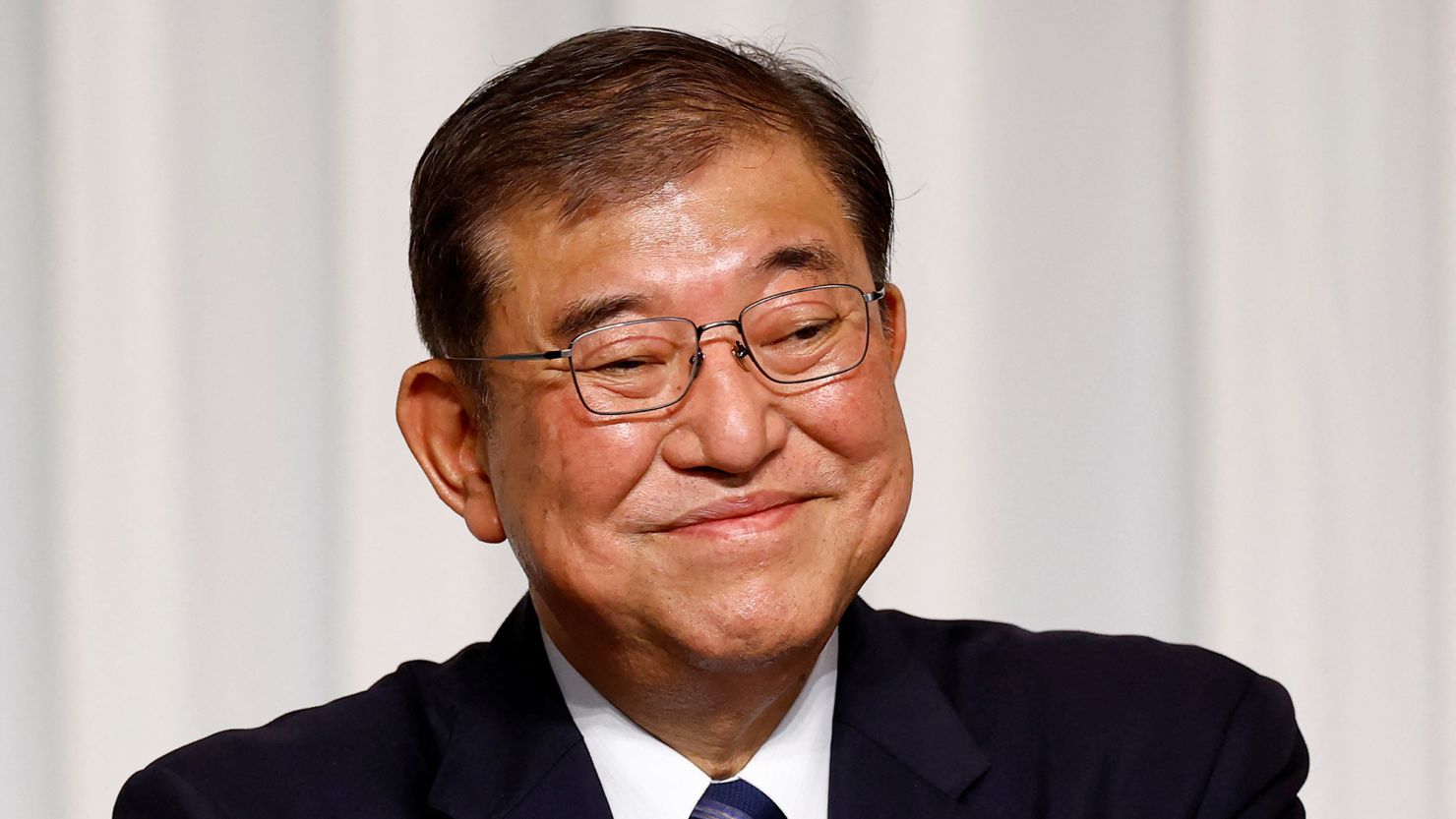Japan’s ruling Liberal Democratic Party (LDP) on Friday selected former Defense Minister Shigeru Ishiba as its new leader, positioning him to become the country’s next prime minister in the coming week.
Ishiba’s election to party leadership effectively guarantees him the premiership, as the LDP’s governing coalition maintains control of parliament.
A recognized defense policy expert, Ishiba pulled off a come-from-behind victory over Economic Security Minister Sanae Takaichi, a conservative figure who had aspired to become Japan’s first female prime minister.
Takaichi’s loss came as Ishiba’s more centrist views likely resonated with party members seeking to counter challenges from liberal-leaning opposition factions. His leadership may be viewed as crucial for shoring up voter confidence as the LDP reels from corruption scandals that eroded outgoing Prime Minister Fumio Kishida’s popularity.
After his win was announced, Ishiba rose to his feet, waving and bowing repeatedly before pledging to dedicate himself to restoring public trust. “I will devote all my body and soul to regain the trust of the people,” he stated.
In his first remarks as leader, Ishiba emphasized the need for internal party reform, calling for an environment where members could “freely discuss the truth,” a party that is “fair and impartial” and one that remains “humble” in its approach.
He also highlighted national security concerns, referencing recent airspace violations by Russian and Chinese military aircraft, as well as North Korea’s continued missile launches.
Ishiba vowed to continue the economic policies championed by Kishida, which aim to pull Japan out of deflation and promote wage growth. Additionally, he acknowledged the challenges posed by Japan’s declining birthrate and aging population, while reaffirming the importance of bolstering the country’s resilience against natural disasters.
“I will work to create a society where women and young people have hope, where hard-working individuals feel rewarded, and where everyone can excel,” Ishiba declared.
Ishiba is expected to call for a general election soon to capitalize on his leadership win, although he did not specify a date. He noted that he would seek public support once his new administration was formed.
In terms of foreign policy, Ishiba has proposed the creation of an Asian version of NATO, linking existing US-led defense networks such as the ANZUS alliance with Australia and New Zealand, and partnerships with South Korea and the Philippines.
He stated that the objective is to foster “an organic connection” among these alliances to promote peace and stability in the region.
He also called for a more balanced Japan-US security relationship, suggesting that having Japan Self-Defense Forces train in the US would further strengthen the alliance.

Shigeru Ishiba (Photo: Kim Kyung-Hoon)
A long-time advocate for Taiwan’s democracy, Ishiba also supports the creation of a disaster management agency, underscoring Japan’s vulnerability to natural disasters.
First elected to parliament in 1986, Ishiba has held key roles such as defense minister, agriculture minister, and secretary general of the LDP under former Prime Minister Shinzo Abe.
Despite his extensive political career, Ishiba has faced resistance from the party’s more conservative members. The 67-year-old former banker has now run for party leadership five times, previously referring to this race as his “final battle.”
Ishiba’s stance on certain issues, such as gender equality and legalizing same-sex marriage, has stirred opposition within the party, particularly from its more traditional factions.
In the latest LDP leadership race, a record nine candidates, including two women, participated. The election was decided by LDP parliament members and around 1 million dues-paying party members, representing just 1% of Japan’s eligible voters.
Political analysts warn that party infighting could usher in a return to the instability seen in the early 2000s, when Japan experienced frequent leadership changes, hampering the ability of its prime ministers to establish long-term policies or build international relationships.
On Tuesday, Prime Minister Kishida and his Cabinet will formally resign, after which Ishiba will be officially elected in a parliamentary vote and is expected to form a new Cabinet later that day.
Kishida congratulated Ishiba on his victory, calling it the “first step” toward the LDP’s renewal. “The LDP will be reborn, live up to the people’s expectations, and deliver results,” he said, stressing the importance of Japan strengthening its defense capabilities and deepening ties with the United States in light of regional security tensions.
South Korea, which has improved relations with Japan over the past year amid an increasingly assertive China, expressed optimism over Ishiba’s leadership. The country’s Foreign Ministry released a statement looking forward to continued active exchanges with Japan’s new prime minister.
The main opposition party, the Constitutional Democratic Party of Japan, has struggled to build momentum despite the LDP’s recent scandals. Former Prime Minister Yoshihiko Noda, now leading the opposition, is steering the party toward a more conservative direction in hopes of attracting swing voters.
Among Japanese voters, Ishiba’s leadership win was met with cautious optimism. Takeshi Irita, a 64-year-old engineer, praised the decision, saying, “He is one of the most realistic and stable candidates, and his views are relatively in tune with the public.”
Hideko Arakawa, an 84-year-old retiree, expressed high hopes for Ishiba, citing his experience. “I expect he will work hard to make positive changes in Japan,” she said.











































